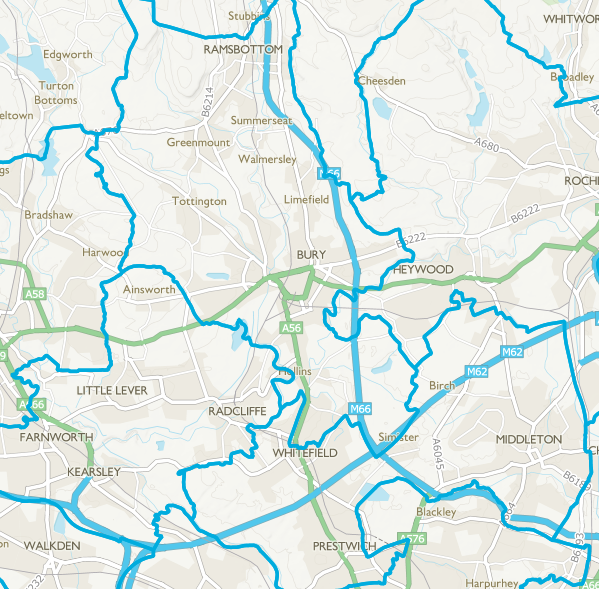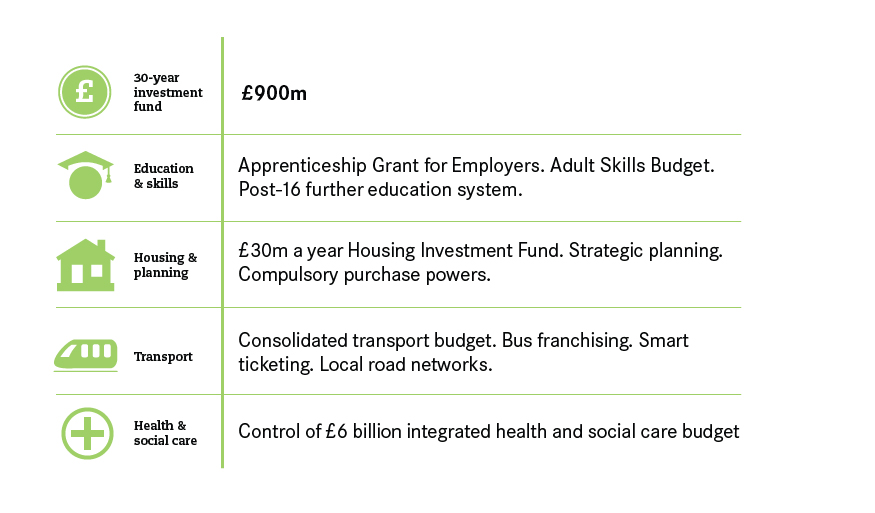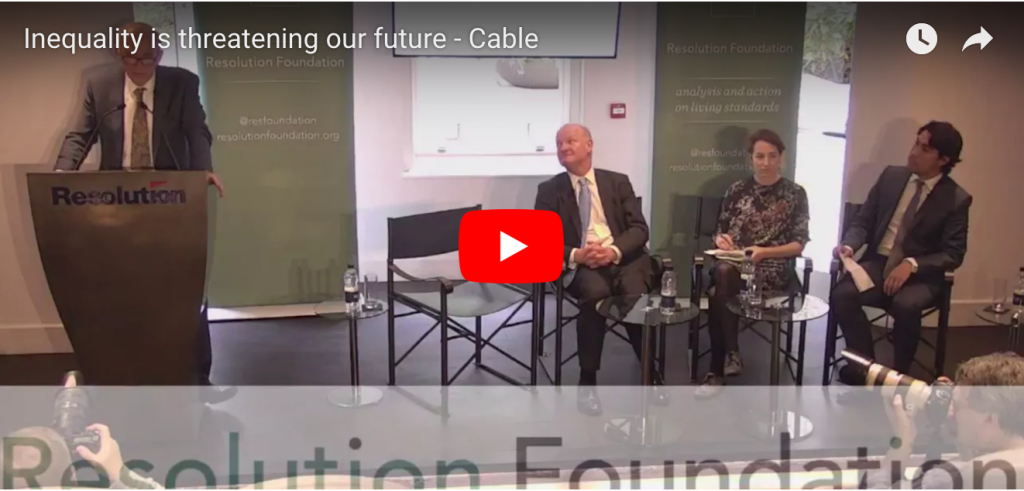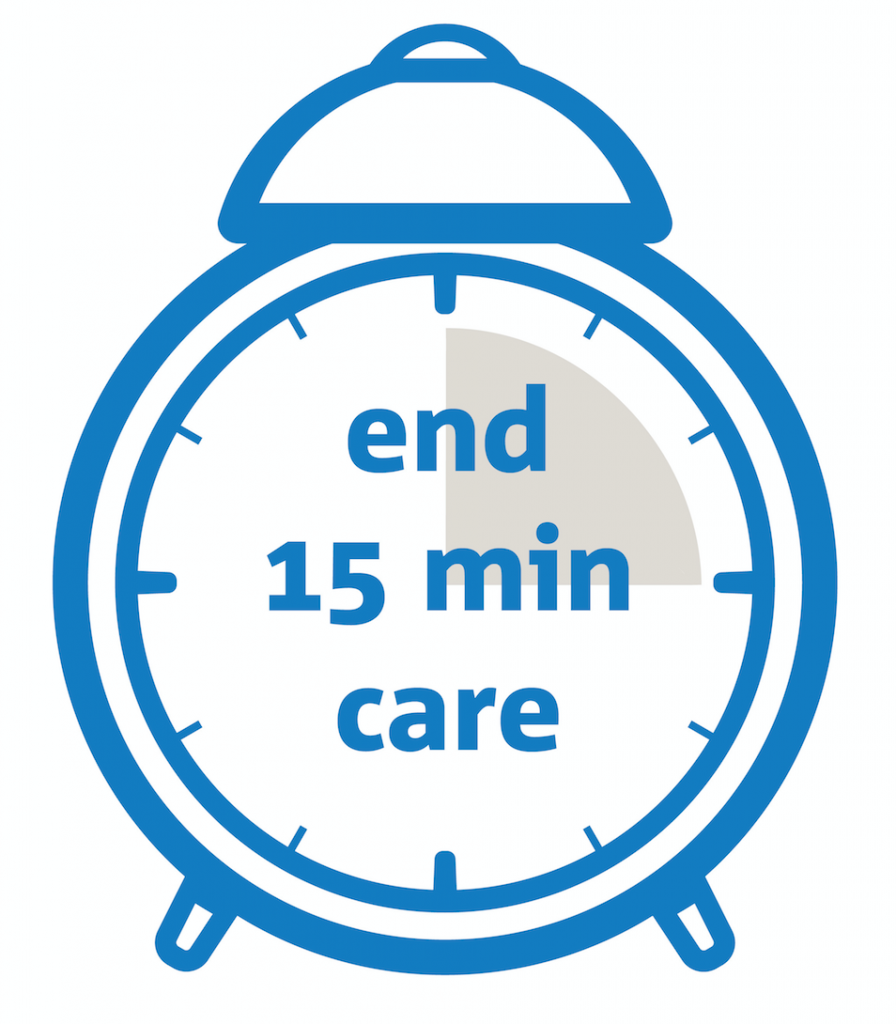Read the highlights from Vince Cable’s speech to the Resolution Foundation on inequality, delivered on the 6th September 2017.

Vince Cable will today make a major speech warning of the dangers of inequality arguing that if the problems we face today are not addressed then our country risks tearing itself apart.
Speaking to the Resolution Foundation he will warn that “growing inequality is linked to poor economic performance, greater economic instability, more social tension, insecurity and unhappiness.” He will also argue that generational inequality is increasingly proving as much of a challenge as class-based inequality. He will warn that “a serious review is needed of the set of taxes which are there to mitigate the sharp, jarring difference brought about by asset inflation and unearned income. We must tax wealth effectively.”
He will say:
On the new, unequal Britain:
“In modern Britain, there is something stirring around the idea of inequality: something new and worrying. This impression is based on the observation that inequalities of income, wealth and opportunity, between classes, regions and generations, are worsening, and that Britain is becoming a more unequal society compared to its neighbours and its past.
“Sometimes an event crystallises this feeling. The Grenfell Tower disaster wasn’t just a horrific accident with severe loss of life, but illustrated in a graphic way how the less well-off are not listened to by those with authority.”
On what inequality means personally:
“What motivates me personally and politically is the way this new Britain contrasts with the more egalitarian society I grew up in. In 20 years, my parents progressed from being factory workers in a house with an outside loo, to being part of the professional class and living in a detached house. Though they both left school at 15, they were able to see me grow up to attend an ‘elite’ university.
“My sense today however is that big differences in living standards and opportunities have since opened up. Social mobility is not what is was.”
On the collapse of social mobility:
“My parents’ experience of economic and social mobility would be very difficult to achieve today. The housing market no longer acts as an escalator when growing numbers cannot get on it, and there is a strong correlation between educational attainment and the educational attainment of the next generation.”
On the importance of inequality of wealth, not just income:
“Perhaps most significantly, wealth inequality is greater than for incomes and is growing, a trend apparent in almost all western economies. In the absence of compensating wealth taxation, high earners can turn their income into assets, and the value of assets can be compounded through investment. This is then passed on as inheritance, entrenching inequality across time between generations and classes.”
On why inequality is harmful:
“Too much inequality is bad for all of us. Put simply, growing inequality is linked to poor economic performance, greater instability, more social tension, insecurity and unhappiness. There should be a broad basis of support for measures which are seen to reduce inequality and contribute to a reduction in economic and social ills.”
Why higher income taxes on the rich aren’t the answer:
“Progressive income tax is often seen as the most politically appealing route to greater equality. The Left – as Labour’s manifesto demonstrated – remains very attracted to high marginal tax rates on the rich.
“Yet history shows that high marginal tax rates are counterproductive, and lead to rapidly diminishing returns. There is greater merit in trying to eliminate the large opportunities which exist for legal tax avoidance and arbitrage, and encouraging greater public disclosure of tax returns.”
On wealth taxation as the solution:
“If Britain is to become a more equal society, a serious review is needed of the set of taxes which are there to mitigate the sharp, jarring difference brought about by asset inflation and unearned income. We must tax wealth effectively.
“A first step would be to reform council tax – which is somewhat regressive and based on outdated property values – by creating more bands and making the bands proportional to the value of a property. Low bands would pay less, high bands more.
“This would need to be combined with effective taxation of inherited wealth. Inheritance is a major factor perpetuating inequality and inhibiting social mobility. That is why genuine meritocrats – like Bill Gates – argue for aggressive taxation of inheritance. Yet policy in the UK has moved in the opposite direction.”
Liberal Democrats leading the fight for greater equality:
“My party and I want to lead on the issue of reducing inequality. Our 2017 manifesto was judged the most redistributive of all by the IFS. There is a concrete Coalition legacy of measures like the Pupil Premium, improving minimum wage enforcement, regulating executive pay, and seeking to lift low earners out of tax. This will be a theme of my leadership.”
You can read Vince’s speech in full here: libdems.org.uk/cable-inequality-full-speech-060915









